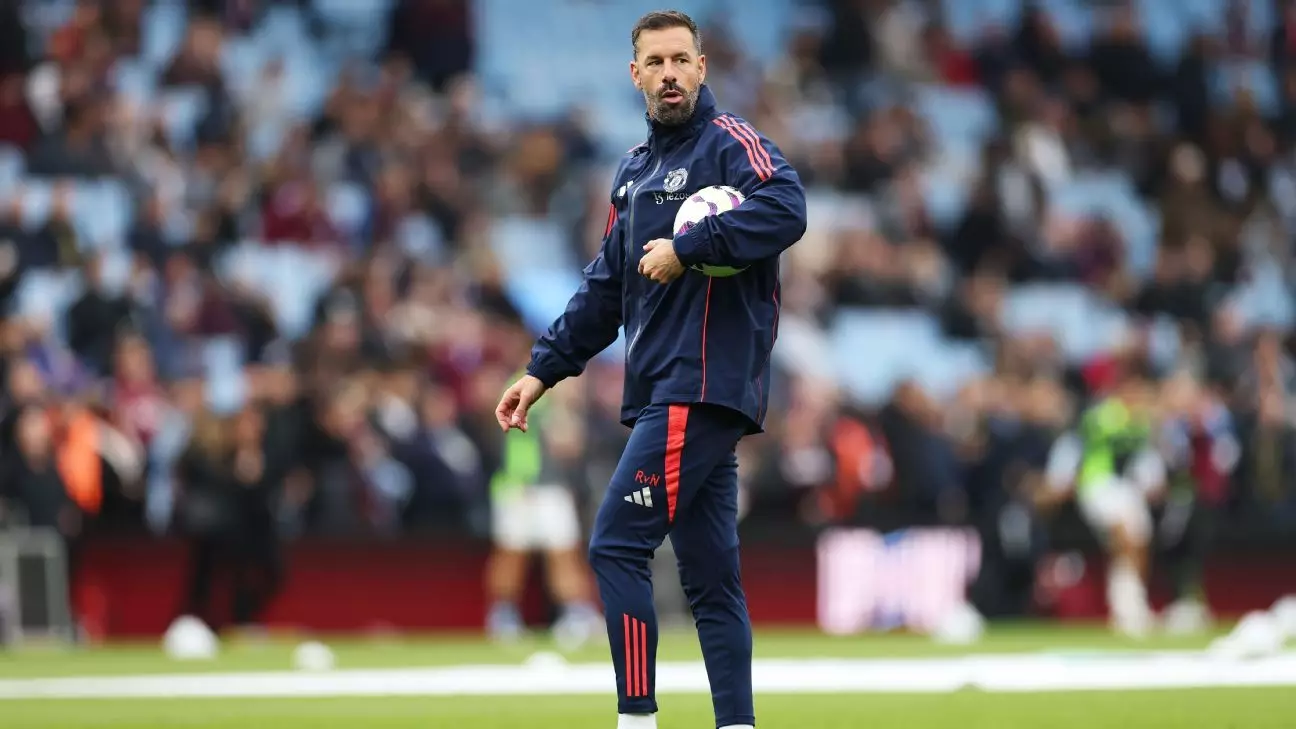In the world of football, the personas of coaches often define their approach to management and the club environment they foster. Ruud van Nistelrooy’s appointment as interim head coach at Manchester United follows a tumultuous period in the club’s history, particularly marked by Erik ten Hag’s dismissal. Van Nistelrooy’s reputation as a player, best known for his sharp skills and an undeniable presence on the field, may equip him for this daunting role, yet his past at United is riddled with mixed emotions and conflict.
His arrival is compelling not only because of his playing history—150 goals in 219 appearances—but also due to his well-documented clashes with players and staff, notably Sir Alex Ferguson. The infamous incidents, like making a young Cristiano Ronaldo cry and his explosive departure from the club, raise questions about whether van Nistelrooy’s larger-than-life character will be an asset or a liability in his new position.
Understanding His Coaching Philosophy
Van Nistelrooy’s coaching career, albeit brief, presents a complex narrative. His resignation as PSV Eindhoven coach, just before his team’s final match, signalled discontent with the club’s hierarchy and internal player relations. This scrutiny is pivotal. Sources indicated that while some players benefited from his mentorship, others found his methods stifling. At PSV, he gravitated towards a pragmatic counterattacking style, which, while effective in earning them a Champions League spot, left questions unanswered about his tactical flexibility.
Critically, van Nistelrooy’s coaching journey reflects a willingness to learn from established mentors like Guus Hiddink and Ronald Koeman. This adaptability might serve him well at Manchester United, an institution currently in turmoil. Yet the question remains: how much can he really evolve his style to address the team’s urgent need for improvement?
What Does the Future Hold?
With the Red Devils sitting precariously at 14th in the Premier League, van Nistelrooy’s first challenge is to infuse a sense of belief and unity within the squad. The tremors from Ten Hag’s management still resonate; fractured relationships exist between key players and the coaching staff. Van Nistelrooy’s charisma may enable him to quickly foster connections with underperforming stars like Marcus Rashford and Bruno Fernandes, both of whom require revitalization to rediscover their form.
Yet, the expectations surrounding his initial matches will be considerable. Fans and commentators alike will scrutinize the tactical decisions he makes—such as formations and player selections—that affect the team’s results. While his assertiveness may garner respect, it is crucial to balance firmness with openness to feedback if Manchester United is to navigate away from its current quagmire.
Van Nistelrooy carries with him an undeniable affinity from the fanbase, which might smoothen his transition into this interim role. Unlike his predecessor, who was perceived as a more intellectual and instructive figure, van Nistelrooy’s innate confidence could be the spark that ignites the squad. His presence in a huddle might command attention and respect, allowing him to penetrate the emotional fabric of a team that needs lifting.
He has already begun initiating one-on-one conversations with players—a hallmark of an astute leader keen to understand his charges better. Yet, can he sustain this personal touch while executing the hard decisions necessary for long-term improvement?
Restoring Manchester United to their potential requires van Nistelrooy to necessitate tactical astuteness alongside player management. The team has suffered from bewildering tactical decisions in recent memory, leading to inconsistencies that have plagued game outcomes. A pragmatic approach that emphasizes placing players in roles where they can thrive is essential.
For example, if he can effectively leverage the squad’s strengths, while addressing key areas such as fitness and mental focus, he stands a fighting chance of reversing the club’s fortunes. Given that the team has historically crumbled in the final quarter of games, instilling a sense of discipline and stamina in preparation could be vital for success.
The Road Ahead
Ultimately, Ruud van Nistelrooy’s tenure as interim head coach presents a complex puzzle filled with historical baggage and great expectations. It hinges not only on his tactical acumen but also on his ability to mend relationships within the squad and inspire confidence in their matches. The stakes are high—if he embraces a pragmatic approach grounded in player potential and team cohesion, there could be a revival in Old Trafford’s fortunes.
Van Nistelrooy embodies the vigor and ambition needed, yet if his reign does not yield positive changes quickly, questions about his suitability will invariably arise. As the club stands at a crossroads, only time will reveal whether Van Nistelrooy is the catalyst for change or merely a transitional figure in Manchester United’s storied path.

Leave a Reply